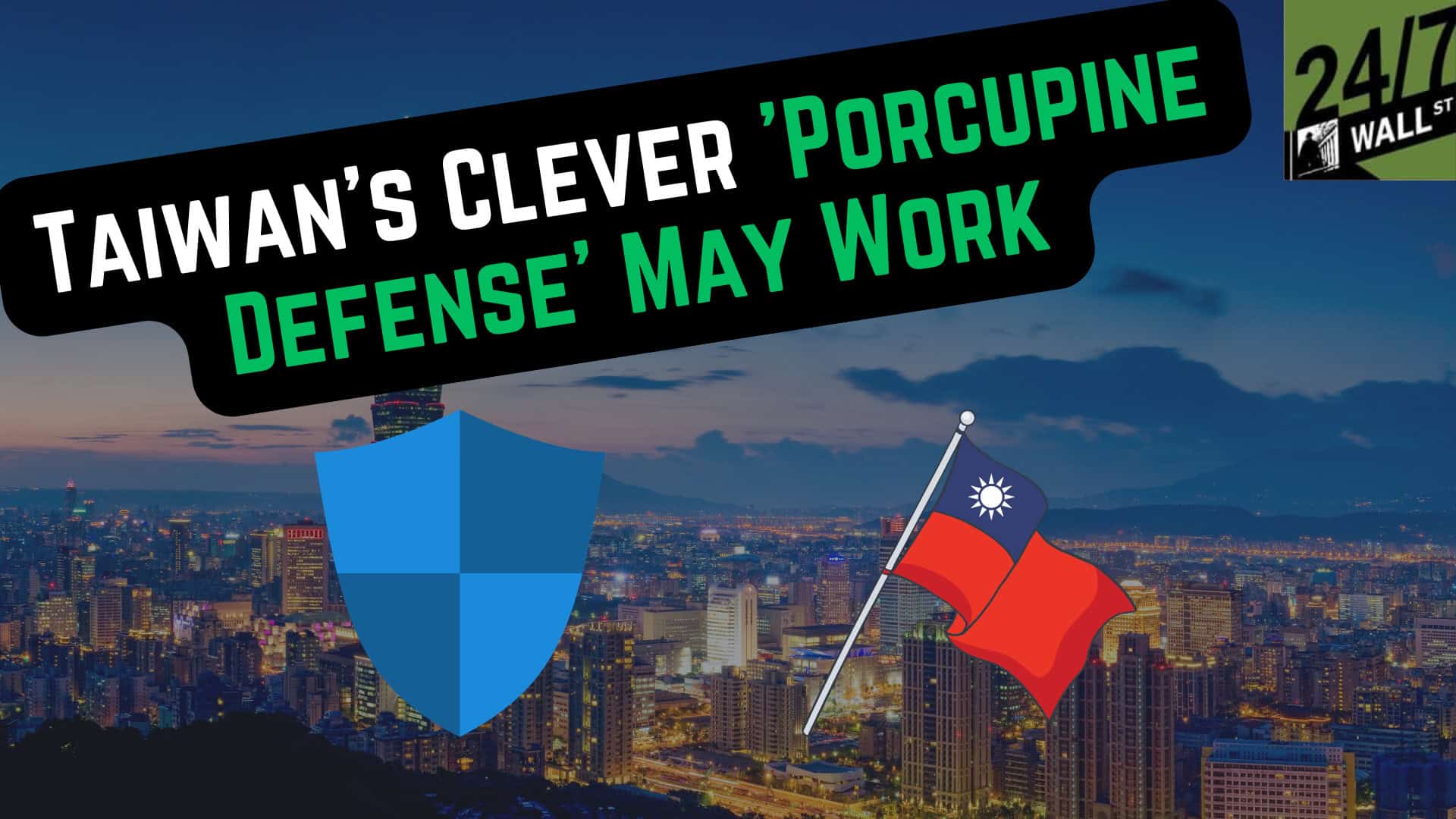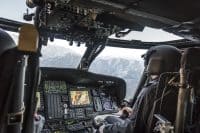
Key Points:
- Porcupine Defense: Taiwan uses a mix of weapons to inflict damage on invaders.
- Terrain Advantage: Shallow waters and barriers can delay the Chinese Navy.
- Cost-Effective: Inexpensive defenses like drones and mines are key.
- Also: Smart money is placing bets for 2025’s best investment, and “the next Nvidia” is a frontrunner. Click here to learn more now.
Watch the Video
Edited Video Transcript:
[00:00:00] Austin Smith: But what techniques or what tools would Taiwan use to defend
[00:00:04] Michael Muir: against China? Sure. The Taiwan, you know, Taiwan’s general approach is the porcupine strategy. So if we imagine, you know, the quills of a porcupine as lots of different types of weapons, not all high tech, some lower tech stuff, um, you know, things like javelins and stingers, long range, medium range, uh, munitions, all forming part of the whole.
[00:00:25] Michael Muir: Um, so the, um, the porcupine, as I say, the porcupine defense is based on lots and lots of different points of inflicting pain on any invading force. Um, so it’s a variety of things, but there are also some really, uh, inexpensive and low tech options that Taiwan might want to pursue. Um, again, terrain is very favorable.
[00:00:49] Michael Muir: Um, to Taiwan in this scenario, the coastal waters around the island are really shallow, which means that they could get a lot of, they could mine the approaches, uh, you know, just for a fraction of the cost, they could significantly delay, uh, the PLA Navy. Um, that is a weakness that the Chinese Navy has, that they don’t have a huge amount of ships that are dedicated to mine clearing.
[00:01:12] Michael Muir: Um, And the most important thing for Taiwan in the first 24 to 36 hours is delay, delay, delay so that the United States can intervene. So mines could play a really important role, even just man made barriers, just throwing them up really quickly. Another thing. Maybe a little more unorthodox. Um, this was something that the Union did during the American Civil War.
[00:01:34] Michael Muir: So they bought up a lot of old obsolete barges, um, and stored them. And their plan was if the, the Confederacy threatened Washington DC is they were just going to take them out and sink them to block the approach on the Potomac River. So I wonder if Taiwan might consider something like that. Um, just buy up a bunch of old ships, scuttle them.
[00:01:53] Michael Muir: Uh, and just create indefinite delays to the PLA. And again, another aspect of terrain that’s very favorable. There are only certain times of the year when a crossing of the Taiwan Strait is viable for a large force, so they could buy days, weeks, possibly even months if they’re sufficiently imaginative and determined.
[00:02:12] Michael Muir: Um, and this, these are not expensive options. You know, they’re, they’re very cost effective. You know, mines can be deployed today. They can be employed, um, by ships, which could be vulnerable to Chinese munitions, but they can be deployed by aircraft. They can be deployed by drones. They can be deployed by submarines.
[00:02:26] Michael Muir: So the point is get as many of them out as possible, as quickly as possible, and just buy time for us forces to, you know, to help, uh, to intervene. Uh, and
[00:02:36] Austin Smith: to put some specifics that just to contextualize for listeners that you talked about javelins and stingers, also mines and ships. Javelins and stingers cost a hundred to 200, 000, give or take each.
[00:02:46] Austin Smith: So those are big dollars for individuals, but for military defending their nation, they’re, they’re nothing there. It’s, you know, that’s, those, those are, those are even below table stakes. So, uh, being able to purchase high quantities of defensive missiles, the porcupine quills analogy for a hundred thousand dollars each makes it very easy to purchase a lot and to have a very, very prickly porcupine.
[00:03:06] Michael Muir: Yeah. And, um, Joe drones as well. You know, of course, you know, they’re becoming. Increasing less expensive, could be vulnerable to cyber attacks. And China has invested quite a lot in that aspect. Um, but just as I said, a multifaceted asymmetric approach to buy as much time as possible to make things as difficult as possible.
[00:03:26] Michael Muir: Um, and then just buy time for U. S. Intervention, I think, is ultimately what Taiwan needs to do. Um, I don’t know if his ground forces today are strong enough. Um, I think that’s something they’re going to have to invest in. Um, but they have favorable terrain. They’ve got a pretty good Navy. It’s not, you know, they can’t go toe to toe, um, with the Chinese Navy, but if they approach, if they do the sort of convoy rating hit and run, uh, they got a lot of Corvettes that are very difficult to detect with long range munitions.
[00:03:55] Michael Muir: They can inflict a lot of harm that way. Um, but if they take a realistic, imaginative, determined approach, um, and with American intervention, I think the odds are favorable that they can successfully repel an invasion. To be sure, it would be extremely difficult, extremely costly, and they’re going to have to endure, you know, and make huge sacrifices.
[00:04:16] Michael Muir: But if they’re suitably determined, I think just the combination of factors with American intervention, um, I think they can be somewhat confident of success.
Take Charge of Your Retirement In Just A Few Minutes (Sponsor)
Retirement planning doesn’t have to feel overwhelming. The key is finding expert guidance—and SmartAsset’s simple quiz makes it easier than ever for you to connect with a vetted financial advisor.
Here’s how it works:
- Answer a Few Simple Questions. Tell us a bit about your goals and preferences—it only takes a few minutes!
- Get Matched with Vetted Advisors Our smart tool matches you with up to three pre-screened, vetted advisors who serve your area and are held to a fiduciary standard to act in your best interests. Click here to begin
- Choose Your Fit Review their profiles, schedule an introductory call (or meet in person), and select the advisor who feel is right for you.
Why wait? Start building the retirement you’ve always dreamed of. Click here to get started today!
Thank you for reading! Have some feedback for us?
Contact the 24/7 Wall St. editorial team.




